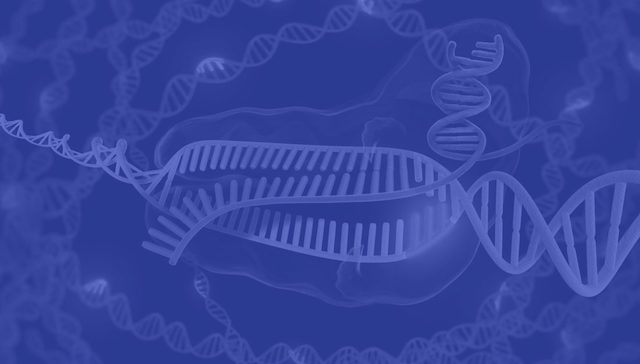Posted: May 10, 2019

The company Calyxt, just outside St. Paul, Minn., wanted to make a new kind of soybean, with oil that's a little healthier — more like olive oil.
As it happens, some wild relatives of soybeans already produce seeds with such "high oleic" oil — oil that is high in monounsaturated fat. It's because a few of their genes have particular mutations, making them slightly different from the typical soybeans that farmers grow.
Manoj Sahoo, the company's chief commercial officer, says this led to an obvious question: "Can we have those same mutations in the modern varieties which are grown by our farmers?"
The company turned to a gene-editing technique, TALEN, that's similar to a more famous one called CRISPR. Sahoo describes it as a genetic scissors that can go in and cut the soybean plant's DNA very precisely. "It does the cut, and then it comes out. There is no foreign material or foreign genes in the soybean," he says.
This is a vital point. If you take genes from another kind of plant, or bacteria, and insert them into a crop like soybeans, the result is considered a genetically modified organism, or GMO. You need government approval to sell a new GMO. Getting it can take years, and millions of dollars.
If you just take a snippet out of a gene without inserting anything new, though, the product falls into a gray area. The European Union has decided that it's still a GMO. The U.S., though, says it's not. In fact, you may not need explicit government approval to sell that product.
Companies and even university researchers can ask the U.S. Department of Agriculture and the Food and Drug Administration to examine their new products, and the results of these voluntary "consultations" are public. The USDA has a website, for example, where one can browse dozens of agency responses to such inquiries.
Calyxt went through this voluntary process with both the USDA and the FDA, and both agencies gave the company's high-oleic soybean a green light.
"We think it is important to build consumer trust, and also [for] food safety, which is critical, to go through that oversight process," Sahoo says.
On the other hand, there's a gene-editing company called Cibus, in San Diego, that never asked the USDA or the FDA to formally approve its new line of canola.
Adding to the confusion is the fact that this canola was created using an older method of creating genetic mutations. The company induced lots of random mutations in canola plants by multiplying them in the lab in Petri dishes. Then it searched for and found exactly the mutation it wanted.
By Dan Charles
May 10, 2019
Source: npr.org
Go-Wine's mission is to organize food and beverage information and make it universally accessible and beneficial. These are the benefits of sharing your article in Go-Wine.com